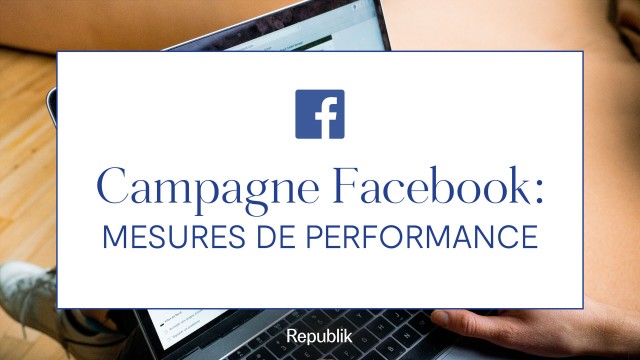
How to properly rate your Facebook campaigns performance?

In recent years, especially since the advent of COVID-19, expectations with regard to employers have multiplied. The labour shortage has been the main contributor to this phenomenon. While it used to be common to professionally mature within the same organization for decades, career trajectories have been diversifying for some time now.
A new conception of work has also made its entry into the job market. People of all age brackets want their 9-to-5 routine to be meaningful and are interested in companies that share their values.
At Republik, we believe that developing a strong value-based culture allows us to attract talented professionals who want to work with us for the right reasons and in the long term.
We apply this idea to every brand that requests our HR marketing services. The concept is based on the capacity of companies to create a sense of purpose that will help them attract and retain the employees that best fit the company culture.
HR marketing means applying a marketing tool kit towards resolving problems with attracting and retaining employees, or for addressing these issues in a proactive fashion. The widespread labour shortage that has lingered in many business sectors is exacerbating these problems; attracting and retaining employees is now a critical business concern for many organizations.
HR marketing can be performed at a company level or within an entire sector of activity or profession. One example would be recent initiatives to promote the professions of teaching or nursing. HR marketing can also take many forms, from redesigning the entire employee experience to using social media to publish employment content.
Before jumping head-first into HR marketing, you should build a solid foundation and concrete strategy before you start addressing current and potential employees.
If you’re reading this, it’s probably because you’re immersed in the business world. So it’s unlikely that the following sentence will surprise you: It’s important to have a strategy to build a brand, and that includes an employer brand.
Designing a strategy ensures you will respond to the needs and expectations of your priority targets. It will help your current and potential employees answer the question “What will I gain by working here?” The answer to that question will become your Employee Value Proposition (EVP).
When developing your value proposition, you should keep in mind that personalizing benefits and career tracks is essential. Designing personas based on the types of jobs you offer will allow you to determine what matters most to your targets.
Without positioning, HR marketing decisions are made randomly, giving the impression of what we call “window dressing”: cosmetic initiatives that come and go without any particular direction, addressed at a general audience.
It’s likely that someone working in a plant will not be attracted by the same things as someone at a head office. And you’re probably not going to address these two profiles in the same places. It is therefore crucial that you determine who specifically you are speaking to before building a recruitment campaign. Understanding your targets will also allow you to better consider your employee career path, which will in turn improve employee retention.
Everyone knows it’s cheaper to invest in customer loyalty than to prospect for a new one, and the same is true for employees. In 2017, Forbes magazine reported that the cost of replacing an employee can be as high as 33% of their salary. So recruiting someone who earns $45,000 could cost the employer as much as $15,000. This amount can include fees for posting the job offer, using a consultant in recruiting, or training the new employee.
This strategic phase also requires that you take some time to analyze what the competition is currently offering. Beyond vacation days and salary, you need to study carefully the employee experience your competitors are offering. This information could be turned into a competitive edge and make your company a top-ranked employer, especially during a labour shortage.
At Republik, we call company actions that benefit the organization as well as the planet and society as a whole “social capital.” Our proprietary approach to creating social capital also helps companies establish these actions and publicly convey them. A company with strong social capital provides its teams with a growing sense of accomplishment based on its contributions to effecting changes that are in harmony with their shared values.
This is where HR marketing can be an interesting proposition for a company or organization—it’s an opportunity to highlight the values that drive you, the investment of your team, and the concrete initiatives you’ve undertaken to create social and environmental change. And if you add to that a well-considered employee experience based on the needs and expectations of your various targets, you’re all set!
Your company will now be able to attract potential job candidates who share the same values, and also keep those new recruits happy since their work is more meaningful and promotes the social and environmental causes they believe in.
The important thing is to communicate everything consistently, in line with your core brand identity and tone, and to ensure a common thread between your internal and external communications. To learn more about our co-creative approach in HR marketing, and how it could benefit your organization, click here!